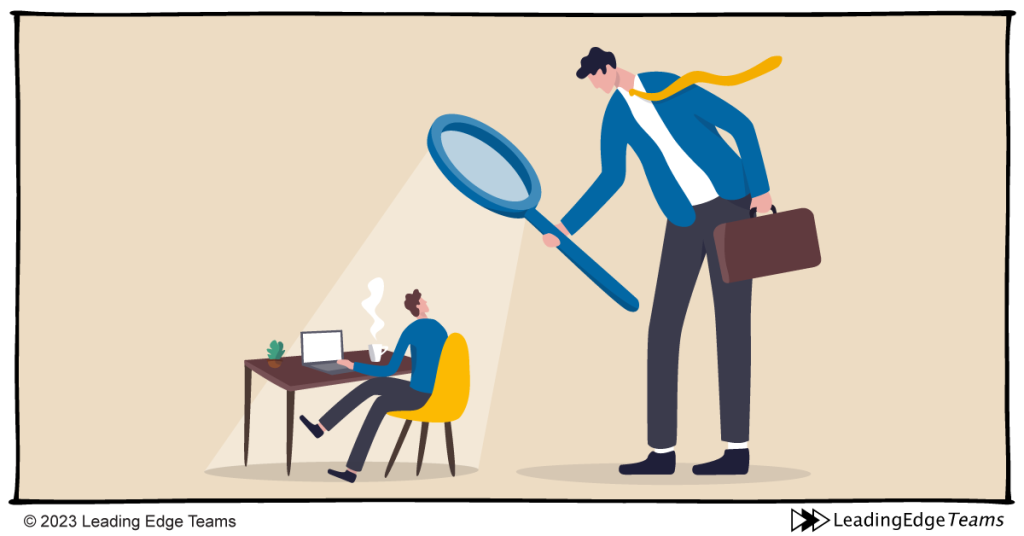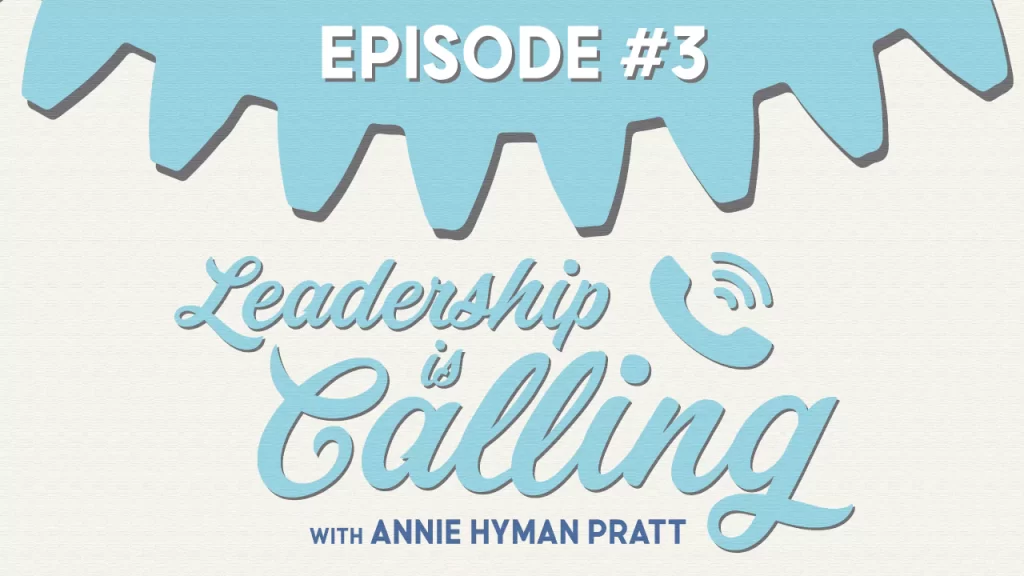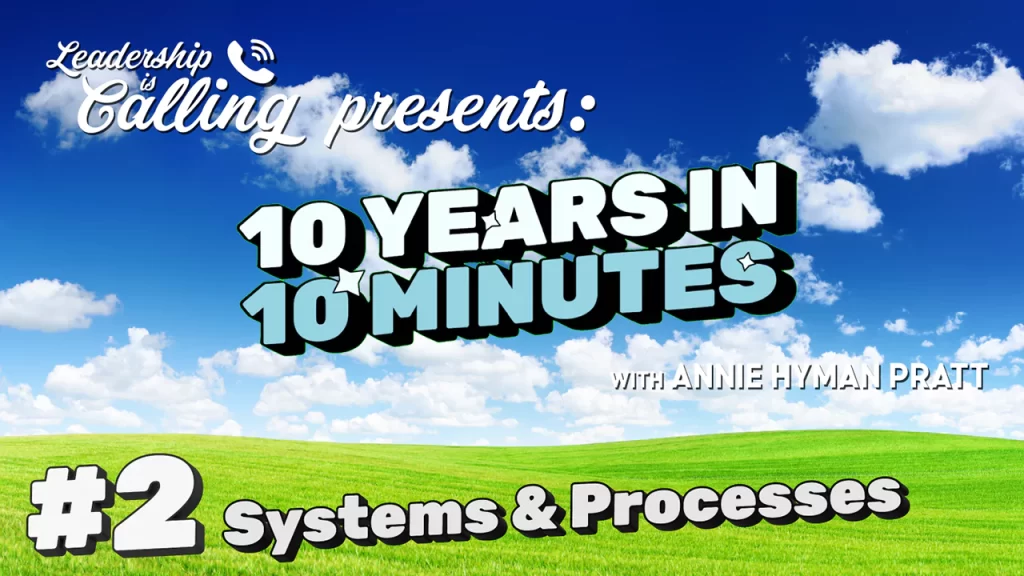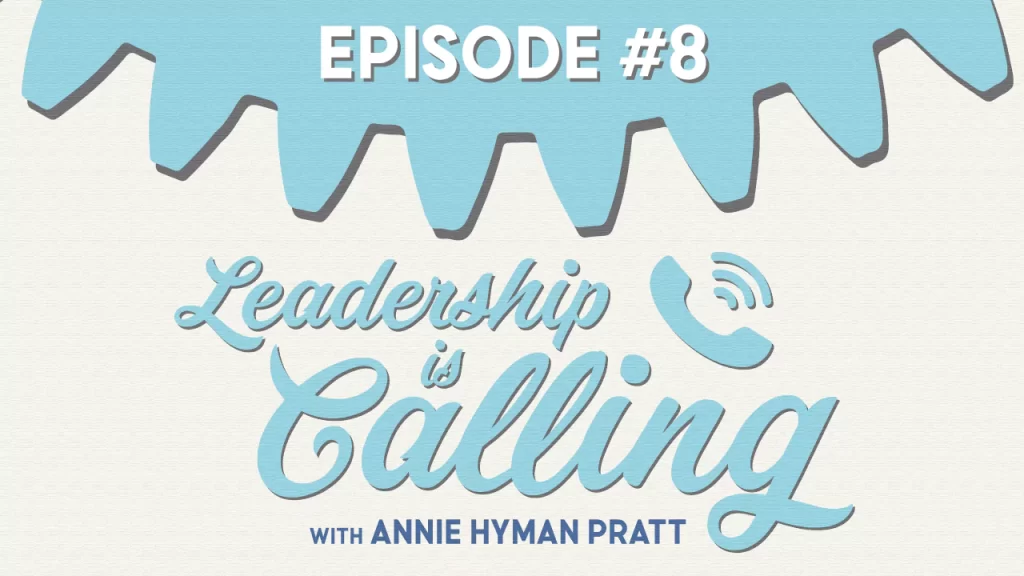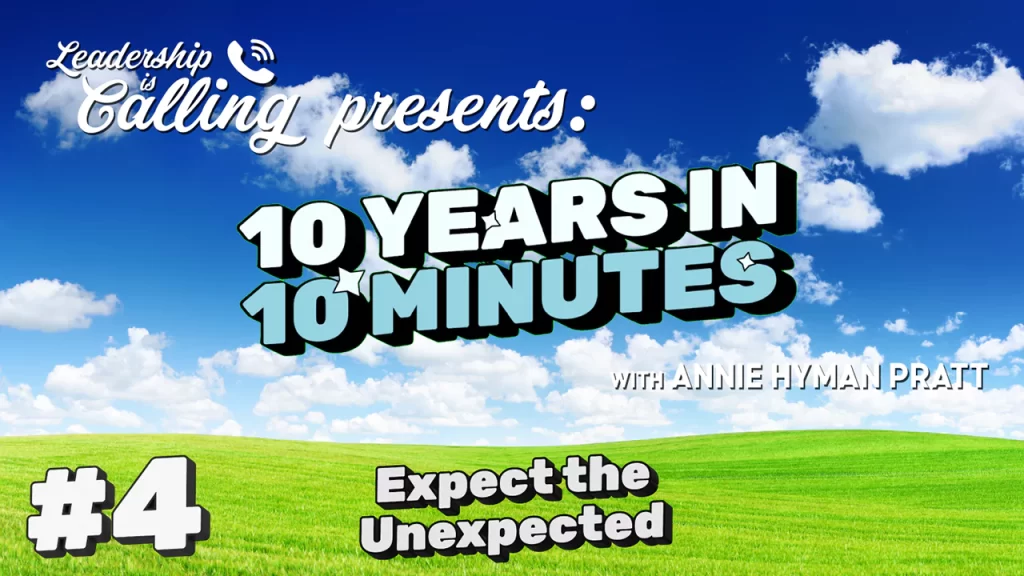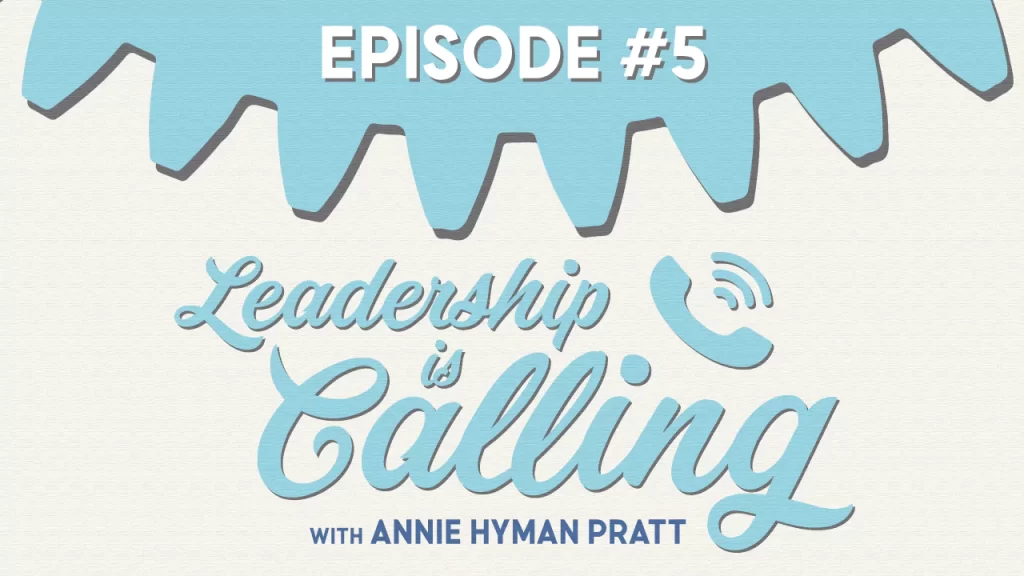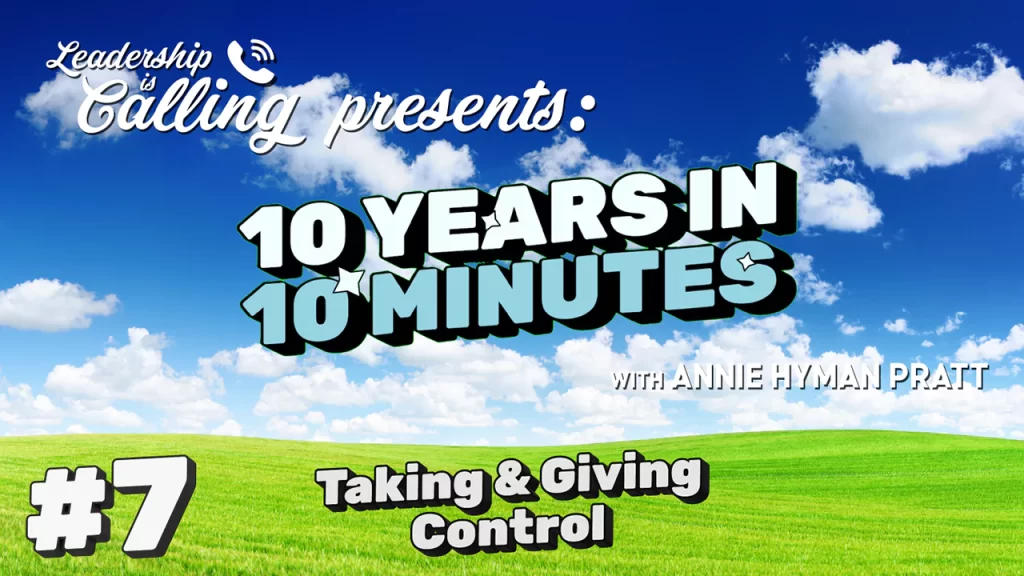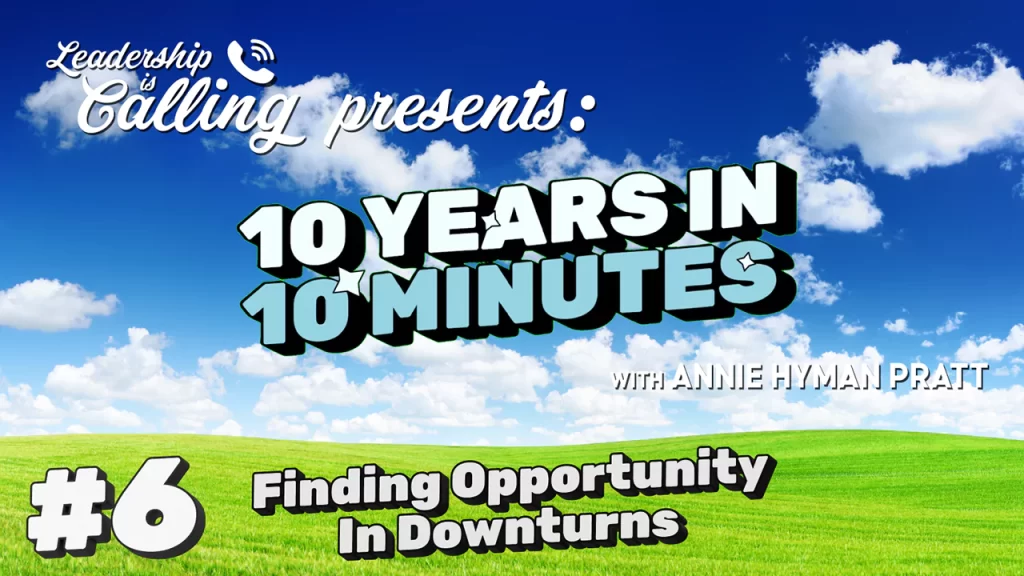Episode #21: How to Achieve Success by Accepting What You Can’t Control
Leadership is Calling Episode #21, 10 Years in 10 Minutes Series #10
Annie Hyman Pratt
- Description
- Transcript
How to Achieve Success by Accepting What You Can’t Control
“Excess control comes from self-protection and reactivity, not problem-solving.” -Annie
Annie discusses two common but counterproductive types of control people turn to when stressed – trying to control others’ behavior and perceptions. She explains how exerting more control often backfires, coming from self-protection rather than effectively solving problems.
This video is for anyone who feels like they are a control freak. If you are always trying to control the people and situations around you, this video is for you. Annie will teach you how to let go of control and live a happier, more relaxed life.
Key Points
- We naturally want to control things to get results, but more success brings less control.
- Two types of control: controlling others’ behavior and controlling how others perceive you.
- Trying to increase control when stressed often backfires and makes things worse.
- Know your control triggers and whether you lean towards demanding or pleasing when stressed.
- Excess control comes from self-protection and reactivity, not problem-solving.
Related Resources
More information: Self-Leadership
Articles: The Control Trap! | Moving through Change As a Team
Downloadable Infographic: The Key Basics of Agreements
Auto-Generated Transcript – unedited version
How to Achieve Success by Accepting What You Can’t Control
Hi everyone. It’s Annie again. And I am here with another ten years and 10 minutes talk. Today I’m going to talk about the two types of control.
Control is an interesting thing because in business, we all come together to get results, right? Leaders and teams and individuals inside a business like we are playing the game of achieving outcomes and to achieve outcomes, we human beings in general are hardwired to control as much as we can to get a result that I think makes sense. We might even call that agency like, what can I do to get a result? Oh my gosh, that’s just how we learn. We learn what we have to do differently and what do we need to control to get a result? Okay, so here is the thing.
Once we really get into business and we get a certain level of success, we start to realize that, you know, ever more success does not. We don’t get more control, we get less because things get more complex, things get less predictable. We are, you know, as we grow, we are so much more impacted by things that happen outside of our company and in the environment and things that we have zero control over. That doesn’t stop us from wanting control. Why? I want to talk about the two types of control is because it’s something that we are going to need to learn to be okay with less and less control to be okay, meaning that we still have agency, we’re still going to do what we can, but we are not going to push for controlling something that we can’t control because it will backfire. And I’m going to give some examples. Okay.
Two types of control. Most people really have a bias to one or the other. Like you, most personalities will, you know, have a go and I’m going to start with a go that is actually not mine. It’s my husband’s and many, many people on the planet. And it is the control of where someone wants to control how others behave, how do they see these people when they’re under stress and challenge and they’re trying to increase their control to get a result, they will become demanding. They might become critical. They will tell you what to do. So one of the things my husband can get very stressed about is when I’m late to somewhere and in that case he can get very demanding, very critical and, you know, he’s really wanting to be able to control me, getting somewhere on time. I hope that makes sense.
There’s a second type of control that we don’t usually think of as control, but it is. And it’s equally a problem. Problem part I want to talk about for a minute, but it’s equally a problem for human beings as they progress in business, in growth and taking on bigger and more challenging things. And that control is controlling how others perceive us. So that’s the control I want. I want to control how others see me. Okay, So under stress and challenge, I will become very avoidant, right? The last thing I want is conflict. I actually don’t care all that much about controlling what other people do. I’m actually pretty good if they fly off the handle as long as it’s not involving me. Look, I don’t you know, I don’t need to control what others do, but I very much want to control how others perceive me. So my other goal is to become very pleasing. Very. You know, I’m the person who will say yes to something, you know, even if I mean no. Or maybe if there’s so much pressure that I can’t handle it, that my way of taking back control of this situation is to say something pleasing, that, you know, that controls how someone perceives me. Right. Because for whatever reason, you know, the thing that makes me feel unsafe is when I think people are going to be upset with me. So those are really important to know because when we get more controlling, when we are trying to up our level of control, it is almost always out of reactivity. It’s almost always out of a situation where we are going into self-protection, where we are feeling bad about something, fearful about something, maybe shame about something. And we want to change that situation immediately to make ourselves feel better.
The thing about upping your level of control in most of those situations, in that way, in the self-protective kind of control, is that it doesn’t solve the problem. It makes it worse. It makes it worse. Okay, So when my husband becomes super controlling, you know, telling me when to have I left by a certain time to get to the restaurant or how I’m doing with packing. Yeah, that’s always a thing. You know, I go like, Let’s go. Are you going to be ready? You know, all of that, You know, that that kind of hyper control. Okay. So when he’s becoming that way towards me, how do you think I’m responding? I’m actually not moving faster. I’m actually getting flustered and I’m starting to move slower. So. So it backfires.
Same with mine. With with mine that, you know, if I’m under pressure and, oh, maybe my husband is unhappy with something and he asks me to commit to a date, a date that is a for an early thing that I know I’m going to struggle with, But I’ll say yes in that moment, knowing that I’m going to disappoint him later. And that has worse consequences than if I could have just in that moment not been so controlling of how I’m being perceived right to be to know that, oh, there I go again. Like, there’s me wanting to protect myself in a way that isn’t really protection. It’s going to backfire. And so we want to start getting an understanding of that and also to just know that when you are with somebody and they are becoming avoidant or pleasing, you know, oh, that’s their self-protective control, that’s their habit of trying to get them, you know, make themselves psychologically safe, even though it will backfire. Same with people that get super demanding and critical. Right. It’s there. They’re just different sides of the same polarity, the same reactive emotional reactions that are designed, you know, for a time when we didn’t have the kinds of problems in business that we have today, that’s coming from our primitive brain, right. From our reactivity. And so get a good understanding of your control triggers, right. Of what you’re trying to control, and especially if you have the kind of control that is about trying to control what others think of you, not what others do. Because I think until I learned that I was pretty sure I was not a control freak. We all can be control freaks. And just what you want to control is the thing that that is that this is really all about, you know, just because, you know, controlling how you’re being perceived as the same might sort of look nice. It’s not nice. It just, you know, lets you disappoint people later. It’s not good.
That’s what I wanted to share with you today, and I hope this is helpful. And I look forward to seeing you again to learn more about this episode’s topic, pick up a copy of my book, The People Part at your favorite book retailer.

